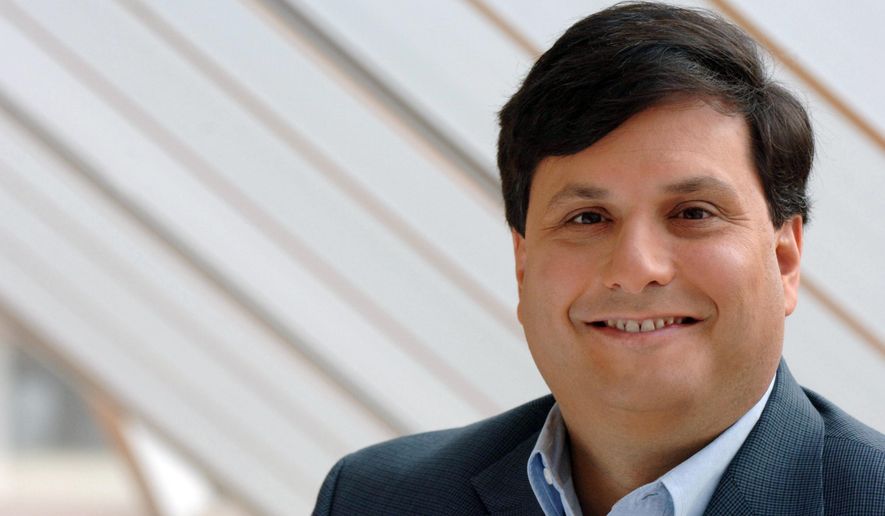OPINION:
Liberian health care workers have threatened to strike unless they receive higher pay for working with Ebola patients. Their counterparts in Spain and in this country are balking at the idea of caring for Ebola patients regardless of the pay.
Meanwhile, it’s estimated that more than 400 doctors, nurses and other caregivers have been infected in West Africa and that many of them have died. Two nurses in Dallas are infected, and others are being watched after coming into contact with Thomas Eric Duncan, the Liberian now listed as our “patient zero.” They may or may not survive, but they know, as do all who risk infection, that nearly 70 percent of those who contract Ebola will die a very unpleasant death.
The courage of those who volunteer to fight this deadly disease is worth celebrating. Life-threatening calamities bring out the best as well as the worst in us. The soldier who throws himself on a grenade to save his buddies, the New York policemen who went into New York’s World Trade Center to try to bring out a few of the injured before the towers collapsed, the fireman who rushes into a burning building to save those trapped inside, and the volunteers who battle Ebola here and in West Africa deserve our respect and admiration.
Some stare death in the face for the pay, but to most the pay is incidental. They do it because they can and because someone must. When Democratic political strategist and CNN contributor Donna Brazile dismissively tweeted after Dallas nurse Nina Pham contracted the disease while caring for Duncan that the “nurse infected with Ebola knew risks of her work,” she was only partially right. The nurse knew the risks and took on the work, but to dismiss what happened when she did sounds strangely like what we hear from those who dismiss the injuries our military personnel suffer in war because “they signed up for it.”
Neither the soldier who goes to war nor the nurse who cares for an Ebola patient should be required to take on risks that might be avoided. The soldier who faces an armed enemy deserves the equipment and training needed to increase his chances of survival, and the health care worker asked to deal with deadly infectious diseases deserves the same.
Those who volunteer to serve in West Africa with Doctors Without Borders and similar groups receive extensive training and the best protection available to prevent the spread of the disease they are fighting. They know and accept that the best equipment available can fail, but trust that everything that can be done to protect them is being done.
Miss Pham no doubt trusted the “guidance” and “protocols” she was asked to follow by her superiors and the folks at the Centers for Disease Control (CDC) when she went in to help Duncan. That, it turns out, was a mistake. According to her colleagues, there were no “protocols” at the hospital, and the guidance the health care workers received was what one might euphemistically call inadequate. From all reports, she did what she was asked to do to protect herself, and because her guidance and the equipment provided by those she trusted wasn’t much good, she didn’t “know” the actual risks she was taking.
The CDC is not what most Americans have trusted it to be for so many years. It’s just another government agency that uses its funds to build palaces, reward insiders with lavish bonuses, and lobby for more while blaming others for its failures. Like many large bureaucracies, it has drifted from its core mission and is content in a self-satisfied way to offer up clearly incompetent and conflicting advice to a too-trusting public. An agency that can “misplace” vials of deadly smallpox toxin and approve an Ebola-symptomatic Amber Vinson to board a plane in Dallas and fly to Cleveland and back is not an agency that can be trusted.
On Friday, President Obama appointed Vice President Joe Biden’s chief of staff to be “Ebola czar” because the CDC has lost the public’s trust and seems incapable of doing what it has received billions of tax dollars to do. Ron Klain is a lawyer rather than a doctor, a loyal Obama man and, according to those who know him, a good talker. Americans can be forgiven if they, like the infected Dallas nurses, thought we already had an Ebola czar at the head of an agency dedicated to protecting the country in the event of a crisis such as the one we are dealing with today.
Appointing Mr. Klain is the sort of thing a political or public relations adviser might suggest to a president who wants to look as though he’s doing something. Fixing the CDC, on the other hand, is a task for a real leader.
David A. Keene is opinion editor of The Washington Times.




Please read our comment policy before commenting.